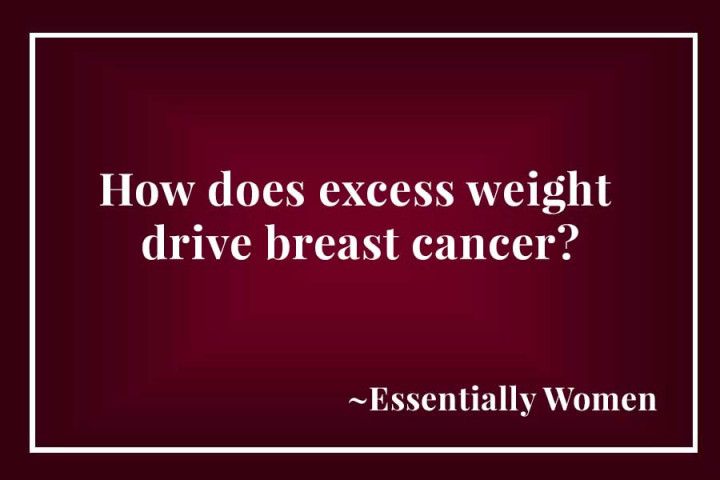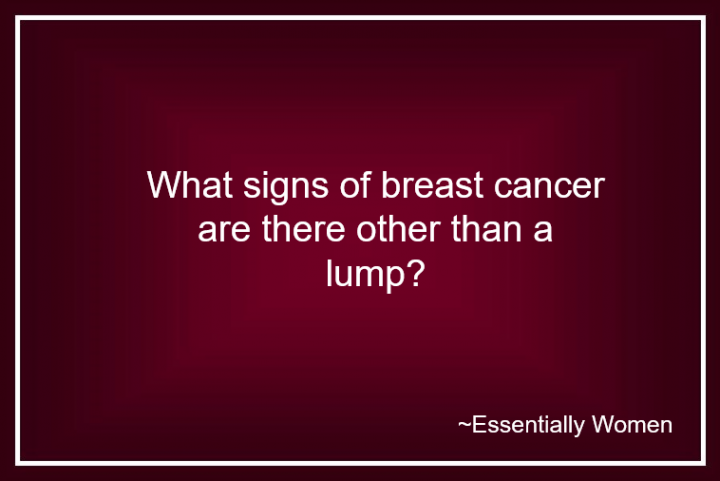Bella Intimates
How Does Excess Weight Drive Breast Cancer?

Obesity is a known risk factor for breast cancer, but precisely how does excess weight drive the disease? A new study has shed some light, revealing the process by which obesity increases the aggression of breast cancer cells.
By studying mouse and human breast cancer tissue, researchers discovered an increase in blood levels of specific cytokines - which are proteins secreted by immune cells - that reduce the activity of an enzyme called acetyl-CoA-carboxylase 1 (ACC1). This process leads to a buildup of a fatty acid precursor called acetyl-CoA, which increases the metastatic ability of breast cancer cells - that is, their ability to spread to other parts of the body.
Obesity and breast cancer.
Being overweight or obese is a well-established risk factor for breast cancer. In fact, after going through menopause, women who are obese are 20-40 percent more likely to develop breast cancer than women of a healthy weight.Obesity has also been associated with an increased risk of breast cancer metastasis and reduced survival from the disease.
However, the exact mechanisms underling the link between between obesity and breast cancer have been unclear. To find out more, Dr. Herzig and colleagues investigated the activity of the enzyme ACC1 in mouse-derived breast cancer cell lines, as well as in breast tissue taken from patients with metastatic breast cancer.
Previous studies have indicated that ACC1 - which plays a role in the synthesis of fatty acids - may be involved in cancer metastasis.
Obesity increases cytokine release.
The analysis revealed that metastatic breast cancer cells have reduced ACC1 levels compared with healthy cells, especially among obese subjects. The reduction in ACC1 leads to an accumulation of acetyl-CoA. The buildup of acetyl-CoA modifies transcription factors - or proteins that regulate gene expression - in a way that promotes breast cancer metastasis.
Further investigation revealed that obesity leads to an increase in the release of two cytokines, called leptin and transforming growth factor beta, into the bloodstream. These cytokines inhibit ACC1 in breast cancer cells. The researchers then used an antibody to block a pathway associated with leptin release in human breast cancer cell lines, which, in turn, prevented ACC1 inhibition. They found that this prevented the cancer cells from metastasizing.
Based on their results, the researchers believe that they may have uncovered a potential new therapy for breast cancer.






